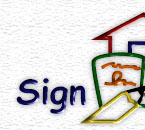
How you can nurture these abilities: Incorporate music daily. Use a tape recorder for listening, singing along, and recording songs and rhythmic and melodic instruments.

LOGICAL/MATHEMATICAL-the ability to understand the basic properties of numbers, adding or subtracting; appreciate principals of cause and effect, one-to-one correspondence; ability to predict (such as which objects will float, sink, etc.)
How you can nurture these abilities: Provide manipulatives to help children experiment with numbers; use simple machines to help children think about cause and effect.

INTERPERSONAL-the ability to understand other people and work effectively with them and to notice who plays with who at school, and why.
How you can nurture these abilities: Give children lots of opportunities to talk about one another and their social interactions, and to problem-solve conflicts together; play games in which one has to figure out the knowledge or intentions of other players.

INTRAPERSONAL-the ability to understand things about oneself, how one is similar to, different from others; remind oneself to remember to do something; know how to soothe oneself when sad.
How you can nurture these abilities: Let children express their emotions, preferences and strategies; help them understand their own wishes and fears and how best to deal with them.

BODILY/KINESTHETIC-the ability to use the body or parts of the body to solve problems, as in playing a ballgame, dancing, or making things with the hands.
How you can nurture these abilities: Provide opportunities for physical challenges throughout the day-not just outdoors.

LINGUISTIC-the ability to use language to express meaning, understanding others, tell a simple story; react appropriately to stories with different moods; learn new vocabulary or a second language that is used naturally.
How you can nurture these abilities: Make sure you provide lots of language opportunities and that children's linguistic expression is listened to and appreciated.

SPATIAL-the ability to be able to form a mental image of large (a home) and local (a block building) spatial layouts; find one's way around a new building.
How you can nurture these abilities: Provide many opportunities for mapping of the classroom and beyond; explore new spaces and encourage children to vary the arrangements of materials in the space.

NATURALIST-the ability to recognize species of plants and animals in one's environment; for example, to learn the characteristics of different birds.
How you can nurture these abilities: Play games in which children recognize fine distinctions among members of a plant or animal group; explore the outdoors regularly and bring the outdoors in; provide books, visuals, and props related to the natural world.








| Art Activities | Craft Recipes | Holiday Activities | Math and Science Activities | Nutrition and Recipes | Rhymes and Fingerplays | Social Studies and Motor Activities | Self-Concept Activities |
| Awards this page has won!!! | Expectations of 3, 4, and 5 year olds | Gardner's Theory of Multiple Intelligences | Other links of interest | Teacher Poems | Teacher Tips | Alphabet and Number Activities |